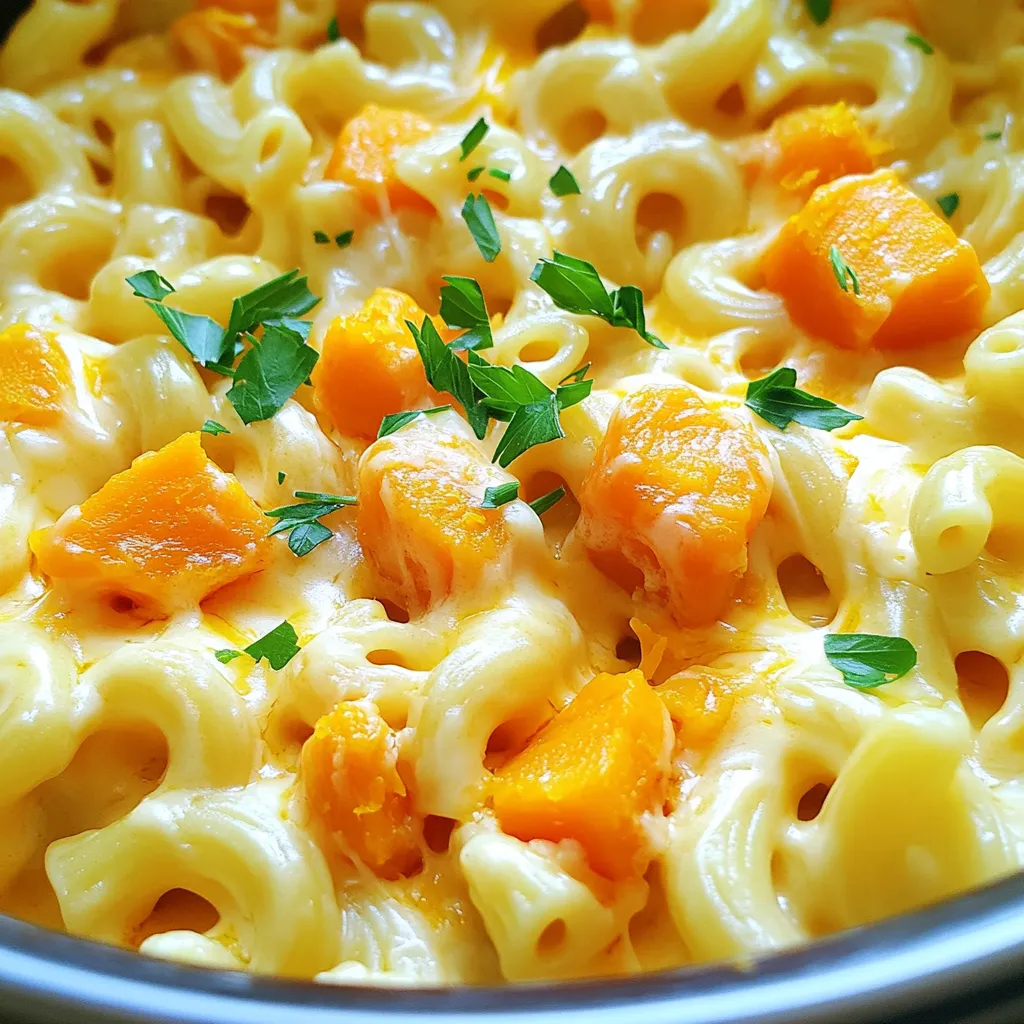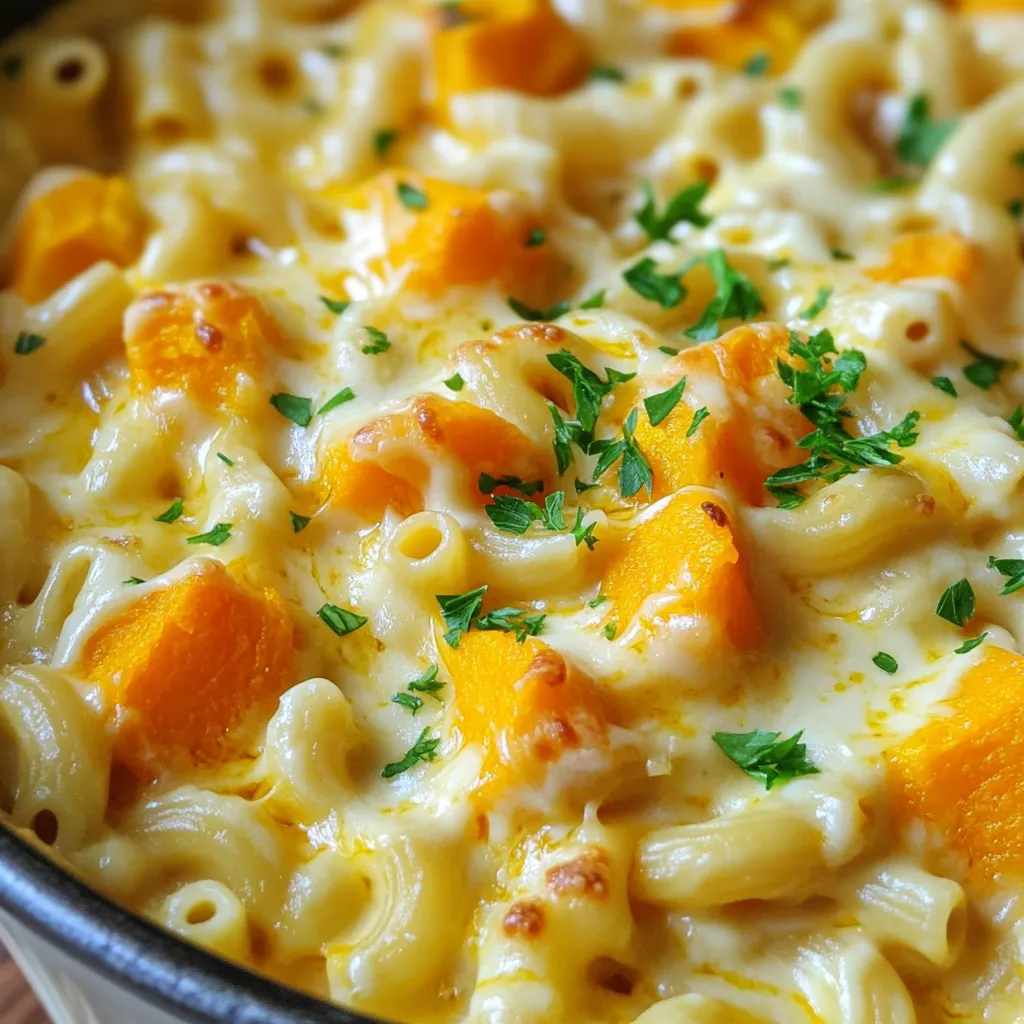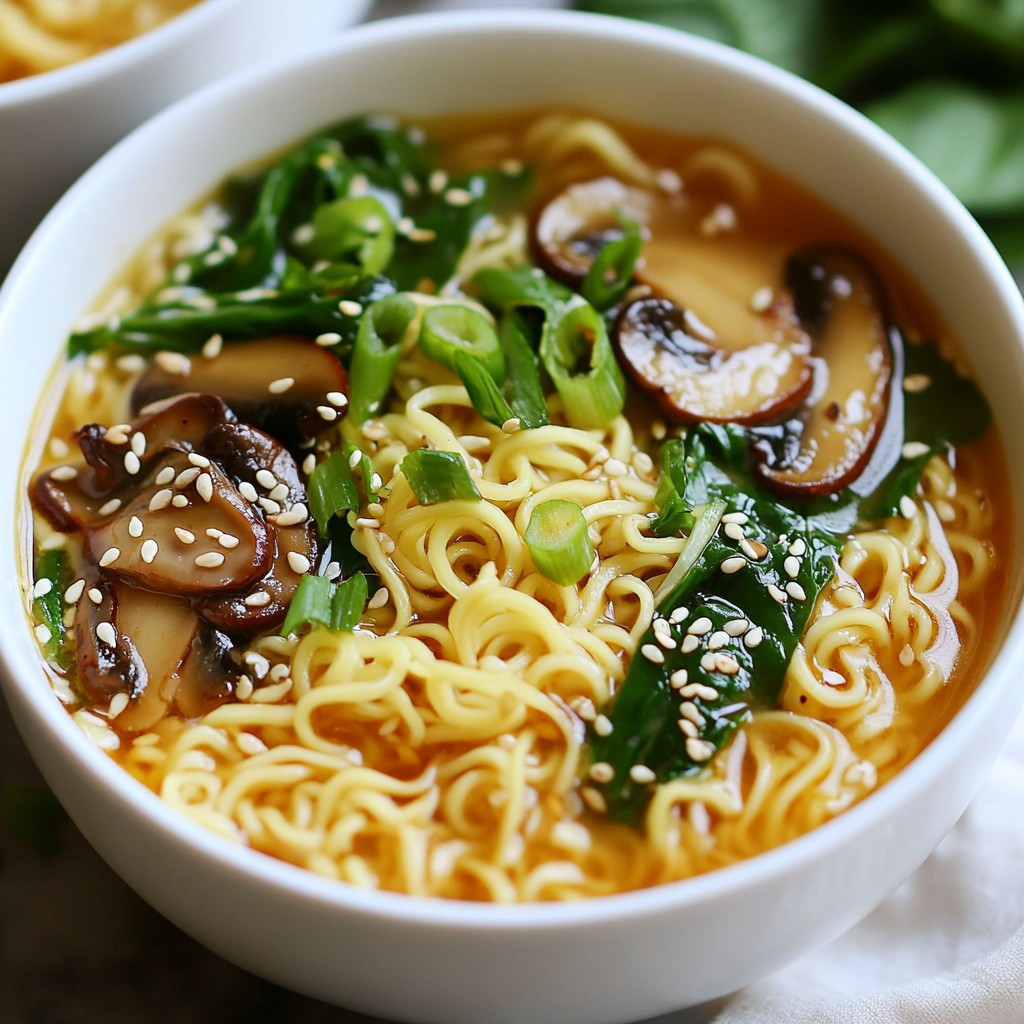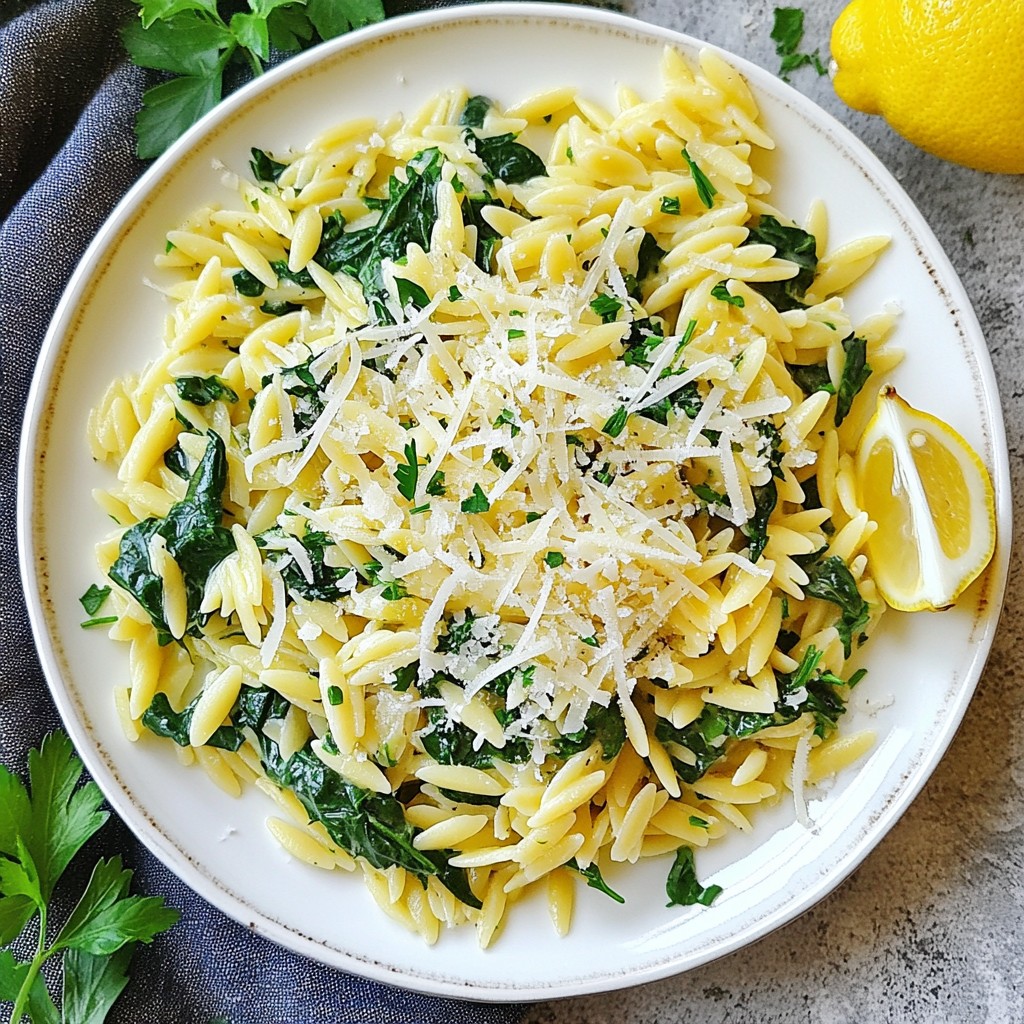If you love creamy comfort food, you’re in for a treat! My Slow Cooker Butternut Squash Mac and Cheese is a game-changer. It’s rich, cheesy, and packed with veggies. You won’t even notice the butternut squash hiding in there! Plus, it cooks effortlessly in your slow cooker, making it perfect for busy days. Ready to transform your mac and cheese game? Let’s dive into this yummy recipe!
Ingredients
Main Ingredients List
– 2 cups uncooked elbow macaroni
– 2 cups butternut squash, peeled and diced
– 4 cups vegetable broth
– 1 cup shredded sharp cheddar cheese
– 1 cup shredded mozzarella cheese
– 1/2 cup cream cheese, softened
Spices and Seasonings
– 1 teaspoon garlic powder
– 1 teaspoon onion powder
– 1/2 teaspoon smoked paprika
– Salt and pepper to taste
Garnish Options
– Fresh parsley, chopped
For this Slow Cooker Butternut Squash Mac and Cheese, I focus on the balance of flavors. The main ingredients blend well. The macaroni adds a nice texture. The butternut squash gives the dish a slight sweetness.
I love using vegetable broth instead of water. It adds depth to the dish. The sharp cheddar and mozzarella bring the creaminess you crave. Cream cheese melts in perfectly, making everything rich.
Next, the spices elevate the flavor. Garlic powder gives it warmth. Onion powder adds a savory note. Smoked paprika brings a hint of smokiness. Adjust the salt and pepper to suit your taste.
Don’t forget the garnish! Fresh parsley brightens the dish and adds color. You can easily change the dish by swapping cheeses or adding herbs. This recipe is simple yet full of great taste.
Step-by-Step Instructions
Preparation Steps
– Dicing butternut squash: Start by peeling the squash. Use a sharp knife to cut it into small cubes. Aim for about half-inch pieces. This size cooks well and blends nicely in the dish.
– Measuring uncooked macaroni: Measure out two cups of elbow macaroni. This pasta shape holds the cheese sauce and adds great texture.
Cooking Instructions
– Adding ingredients to the slow cooker: Place the diced butternut squash and uncooked macaroni in the slow cooker. Pour in four cups of vegetable broth, making sure the pasta and squash are fully covered. Add one teaspoon each of garlic powder and onion powder, along with half a teaspoon of smoked paprika. Season with salt and pepper.
– Cooking time and settings: Cover the slow cooker and set it to low heat. Cook for about two to three hours. Check for tenderness. The pasta should be soft, and the squash should be cooked through.
Final Touches
– Adding cheese and adjusting consistency: Once cooked, stir in one cup of shredded sharp cheddar cheese, one cup of shredded mozzarella cheese, and half a cup of softened cream cheese. Mix until all the cheese is melted and creamy. If the mix is too thick, add a splash of vegetable broth to thin it out.
– Tasting and adjusting seasoning: Taste the mac and cheese. Adjust the seasoning with more salt or pepper if needed.
Serve warm, topped with fresh parsley for a pop of color. Enjoy your creamy, cheesy delight!
Tips & Tricks
Cooking Tips
– Make sure the pasta is fully submerged in the broth. This helps it cook evenly.
– For melting cheese, add it when the pasta is done. Stir gently for a creamy texture.
Ingredient Substitutions
– If you can’t find butternut squash, try pumpkin or sweet potato. Both add great flavor.
– For a vegan version, use cashew cheese or almond cheese instead of dairy cheese.
Serving Suggestions
– Serve with a simple green salad to balance the meal.
– Garlic bread or crusty rolls pair well and add a nice crunch.

Variations
Healthier Options
You can make this dish lighter. Start by cutting down the cheese. This lowers calories without losing taste. You can also add more veggies. Spinach, broccoli, or peas blend well. They add nutrition and color.
Flavor Enhancements
Want to boost flavor? Try adding fresh herbs like thyme or basil. A pinch of cayenne pepper can give a kick. If you want protein, add cooked chicken or turkey. These make the dish heartier and more filling.
Seasonal Variations
Change it up for the seasons! In fall, add nutmeg or sage. These spices pair well with butternut squash. For spring, consider fresh asparagus or peas. They bring a bright twist to this cozy dish.
Storage Info
Storing Leftovers
Store your leftovers in airtight containers. Glass or plastic containers work great. Make sure they seal well to keep moisture in. Your mac and cheese will stay fresh in the fridge for up to three days.
Reheating Tips
To reheat without losing texture, use the stove. Heat it in a saucepan on low. Stir often to warm it evenly. If you use the microwave, heat it in short bursts. Stir after each burst to avoid hot spots.
Freezing Instructions
To freeze, place cooled mac and cheese in freezer-safe bags. Squeeze out as much air as you can. It will last up to three months in the freezer. When you are ready to eat, thaw it overnight in the fridge. Reheat it on the stove, adding a splash of broth if needed.
FAQs
Can I use frozen butternut squash?
Yes, you can use frozen butternut squash. It saves time and effort. Just make sure to thaw it before adding it to the slow cooker. This helps it cook evenly with the pasta. Frozen squash may add a little extra moisture, so keep an eye on the broth level.
How long does this dish last in the refrigerator?
This dish lasts about 3 to 5 days in the fridge. Store it in an airtight container. Make sure it cools down before sealing it. If you want to keep it longer, consider freezing it.
Can I make this recipe without a slow cooker?
Yes, you can make this recipe on the stove. Boil the pasta and squash in vegetable broth. Once tender, stir in the cheeses and spices. Cook on low heat until everything is creamy. This method takes less time than the slow cooker.
What should I do if the mac and cheese is too thick?
If the mac and cheese is too thick, add a splash of vegetable broth. Stir well to combine. You can also add a little milk or cream to achieve your desired creaminess. Adjust it slowly to avoid making it too runny.
Is this recipe gluten-free?
This recipe is not gluten-free because of the elbow macaroni. However, you can use gluten-free pasta as a substitute. Check the package to ensure it cooks similarly. This way, you can enjoy the dish without gluten.
This blog post outlined a tasty recipe for mac and cheese with butternut squash. We covered ingredients, cooking steps, and tips for a perfect dish. You can easily customize it to suit your taste or diet. Don’t forget to try the variations and serving suggestions for a fun spin. Remember, leftovers can be stored well for later meals. Enjoy your cooking adventure and share it with friends!




